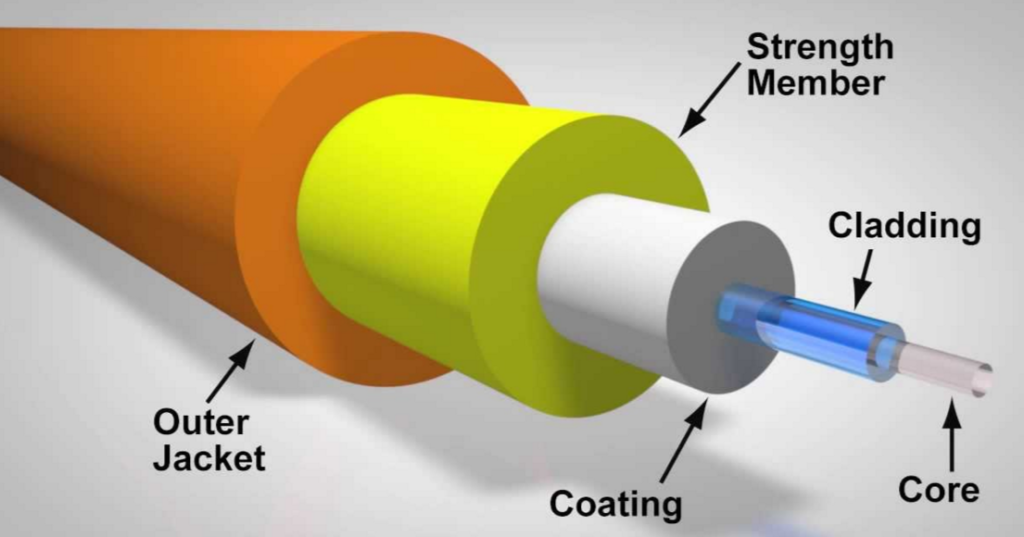?Have you noticed the changes happened in just a few years ago?— The faster internet speed? The thinner computer screen? Or the smaller computer case? Well, one special thing that I want you know is the fiber optic cable. The emergence of it has made the copper cable gradually disappear in front of the public. Today, we will center on the topic that how and why it happens in our life, and provide you with some hints about this magic wire.
What Is Fiber Optic Cable
Fiber optic cables carry communication signals through pulses of light produced by small lasers or light-emitting diodes (LEDs). Compared to wired cables, fiber optic cables provide higher bandwidth and can transmit data over longer distances.
The cable consists of one or more strands of glass, each only slightly thicker than a human hair. The center of each strand is called the core which provides the pathway for light to travel. The core is wrapped by a layer of glass called cladding that reflects light inward to avoid loss of signal and allow the light to pass through bends in the cable.

Fiber Optic Cable Types
The two primary types of fiber cables are called single mode and multi-mode fiber. Single mode fiber uses very thin glass strands and a laser to generate light while multi-mode fibers use LEDs. The core diameter of single mode fiber is 9μm, and multi-mode is 62.5μm or 50μm.

Single mode fiber networks often use Wave Division Multiplexing (WDM) techniques to increase the amount of data traffic that can be sent across the strand. WDM allows light at multiple different wavelengths to be combined (multiplexed) and later separated (de-multiplexed), effectively transmitting multiple communication streams via a single light pulse.

| Items |
Single mode fiber |
Multi-mode fiber |
| Transmitting distance |
Long |
Short |
| Data transmission rate |
High |
Low |
| Lamp-house |
Laser |
Light-emitting diodes(LEDs) |
| Signal loss |
Small |
Large |
| Difficulty of access |
Hard |
Easy |
| Costs |
High |
Low |
When making a decision between single mode and multi-mode fiber cables, the first element to consider is the fiber distance you actually need. For example, in a data center, multi-mode fiber cables is enough for the distance of 300-400 meters. While in applications that require distance up to several thousands of meters, the single mode fiber is the best choice. And in applications which can use single mode and multi-mode fiber, other factors like cost and future upgrade requirements should be taken into consideration for your choice.
How To Install Fiber Optic Cable
Fiber optic cable has now penetrated into all aspects of our lives. Understanding the basic knowledge of fiber optic cable installation may help us build a fiber optic network system with high performance and stability. Therefore, one cannot be too cautious when installing fiber optic cables. The end of each cable must be ground and connected to the optical interface through an electric grill or chemical chlorination process to ensure that the optical channel is not obstructed. Moreover, fibers cannot be pulled too tight or form a right angle. Remember to avoid moisture, operate within the cable’s temperature range, and bear in mind the bend radii, crush load and use load along with vertical rise distance.
:: بازدید از این مطلب : 158
|
امتیاز مطلب : 0
|
تعداد امتیازدهندگان : 0
|
مجموع امتیاز : 0

